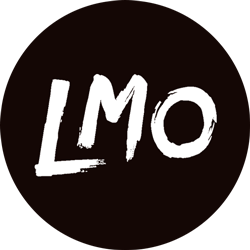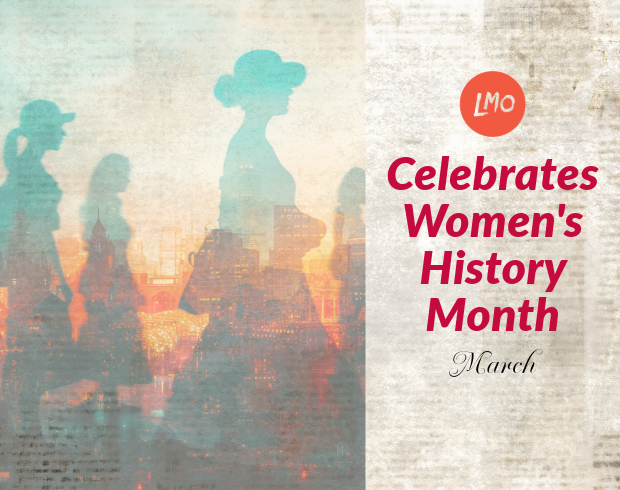Breaking the Ad Ceiling: Recognizing the growing role of women in the advertising industry
Breaking the Ad Ceiling: Recognizing the growing role of women in the advertising industry
As we celebrate Women’s History Month, we reflect on the transformative journey of women in various industries, including advertising and communications. Our industry has undergone significant changes, particularly concerning gender dynamics. Women have made remarkable strides and challenged traditional gender roles since the era of advertising immortalized in pop culture by “Mad Men.” Female influence has reshaped the landscape – and we believe we’re all better for it.
While “Mad Men” depicted a male-dominated industry plagued by misogyny and sexist personas (most famously, Jon Hamm’s Don Draper), it also hinted at the seeds of change. As the decades progressed, women began to break through barriers and assert their presence in advertising agencies across the country. Trailblazers like Mary Wells Lawrence, who founded her own agency in the 1960s, paved the way for future generations of women in advertising. Their determination, creativity and resilience challenged the status quo and reshaped perceptions of women’s roles in the workplace.

Today, women play integral roles at all levels of the advertising industry, from creative directors and account executives to CEOs and business owners. With a growing emphasis on diversity, equity and inclusion, agencies are recognizing the value of varied perspectives and experiences in driving innovation and connecting with diverse audiences. Women-led campaigns and initiatives have reshaped the way brands communicate and engage with consumers, reflecting a more inclusive and progressive approach to advertising.
Don Draper might be shocked to learn that our small but mighty agency is led by a woman, but we’re glad to say that fact is hardly worth blinking an eye at these days.
We sat down with Karen Laughlin, CEO of LMO, to chat Women’s History Month and women’s contributions to our industry. Read on to see what she had to say.

Question: What does Women’s History Month mean for you personally?
Karen Laughlin: To me, Women’s History Month means recognizing and celebrating all the achievements and contributions made by women that have had a positive effect on our culture, society and personal lives.
Q: As a female CEO in the advertising and communications industry, what does Women’s History Month mean for your company and the broader industry?
KL: In our 28-year history, we have been fortunate to have many women who have successfully started or spent much of their career at LMO. Our goal is to build teams with balance of representation to create authentic and effective campaigns for our clients. Taking time to recognize the contributions of the women throughout our history as well as in the broader industry, helps us appreciate what women bring to the table.
Q: In what ways does the LMO company culture recognize, celebrate and show appreciation to women?
KL: We currently do not have a specific initiative for recognition, however, we strive to recognize, celebrate and show appreciation across the board to our employees who bring diversity in culture, ideas and approaches to our clients’ challenges.
Q: Historically, the advertising world has been male-dominated. That’s changing, but what do you think are some of the challenges women face in the industry?
KL: Representation of women in the advertising and communications industry is at an all-time high, however, some feel there is still a challenge with women in senior leadership positions. In our case, this is simply not true. On top of having a woman as CEO, our leadership team is currently 60% women.
Q: On the other hand, what do you believe are some advantages women have in the industry?
KL: I wouldn’t say it’s an “advantage,” but women typically have many traits that are key to creating successful teams in this industry. In a time when brands seek to expand their products and services, target new audiences and markets, it is imperative to have representation of typical female traits such as empathy and tolerance. Unique perspectives from women can provide more insight across the campaign development process. Women, being a minority, also tend to be more inclusive and sensitive to under-represented groups.
Q: Who are some women you admire? Could you share a personal reflection or story about a woman who has inspired you, personally or professionally?
KL: Early in my career, I was fortunate to have an experienced female mentor and role model. I was at an internet start-up backed by a large multi-brand conglomerate company. With a goal of integrating the two companies to IPO, Becky was hired as the VP of Marketing. When one director exited, I became the team lead and reported directly to Becky. It was fun, fast-paced and a bit of a rollercoaster ride. Becky had a calm assurance about her that made every tricky situation manageable. Her leadership style was to listen and ask questions. She was never afraid to admit when she didn’t have the answers, but always helped to find a solution. She was empathetic, cared about me as a person, and just genuinely made working “fun” with her infectious laugh. Professionally, she had the most impact on my career and helped me to set a path towards personal growth and achievement.
Q: Do you have a favorite woman-focused/women-empowering ad campaign?
KL: “Like a Girl” by Always. I love this campaign because the strategy for Always is on point with celebrating who you are authentically, and how stereotypes can be damaging.
Q: LMO is in the process of being formally recognized as a woman-owned small business. What does that designation mean for the company?
KL: On top of the benefits of having women in leadership as discussed earlier, practically, it makes us more competitive from a business development standpoint.
Q: What advice would you give to female aspiring communications professionals?
KL: My advice is to find a role where you can grow and have the balance to achieve your personal goals. Leverage your strengths, work hard on your weaknesses and don’t be afraid to keep learning and growing.
Women’s History Month is a great opportunity to reflect on and show extra acknowledgement to the contributions women have made. At LMO, we’re grateful to have a number of dedicated, hard-working and incredibly talented women on our team, all of whom lend their skills and expertise to our success.




